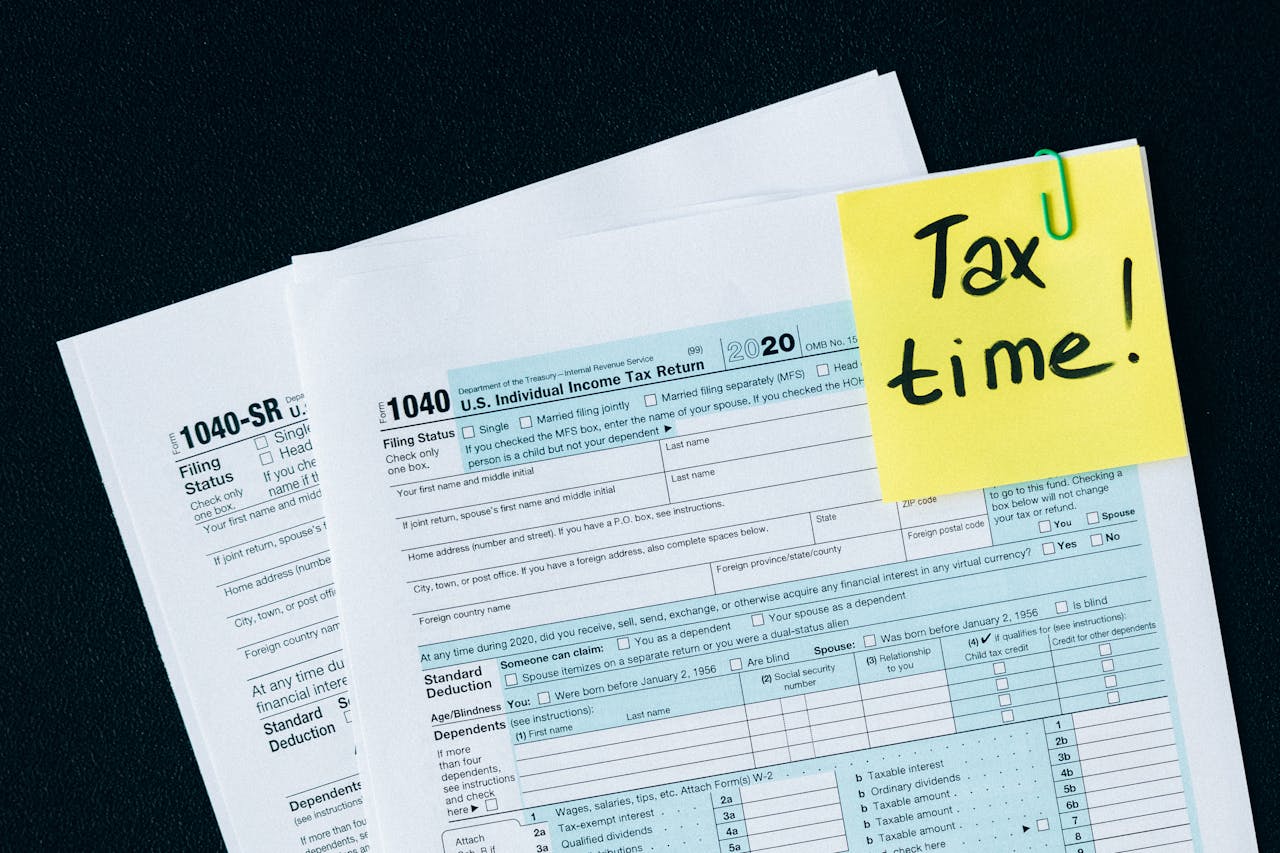Introduction
As a new entrepreneur, navigating the complex world of business regulations and tax requirements can be daunting. One crucial aspect of running a successful business is understanding and properly filing end-of-year forms. This comprehensive guide will walk you through the essential forms, their importance, and best practices for compliance.
Common End-of-Year Forms
Regardless of your business size or structure, you’ll likely need to file the following forms:
- Form 1099-NEC: For each contractor paid $600 or more
- Form 1099-MISC: For other payments of $600 or more (e.g., rent, royalties)
- Form 940: Annual Federal Unemployment Tax Return
- Form 941: Quarterly Employer’s Tax Return (including Q4)
- Form W-2: For each employee
- Form W-3: Transmittal of Wage and Tax Statements
Structure-Specific Forms
Depending on your business structure, you may need to file additional forms:
Sole Proprietorships
- Form 1040 (Schedule C): Report business income and expenses
Partnerships and LLCs
- Form 1065: U.S. Return of Partnership Income
- Schedule K-1: Partner’s Share of Income, Deductions, Credits, etc.
S Corporations
- Form 1120S: U.S. Income Tax Return for an S Corporation
- Schedule K-1: Shareholder’s Share of Income, Deductions, Credits, etc.
C Corporations
- Form 1120: U.S. Corporation Income Tax Return
Non-Profit Organizations
- Form 990: Return of Organization Exempt From Income Tax (or 990-EZ for smaller organizations)
Size-Specific Requirements
For medium (51-500 employees) and large (500+ employees) businesses classified as Applicable Large Employers (ALEs) under the Affordable Care Act:
- Form 1095-C and 1094-C: Health coverage information reporting
The Importance of Accurate and Timely Filing for New Entrepreneurs
1. Legal Compliance: A Foundation for Your Business
Mandatory Reporting
Many end-of-year forms, like W-2s and 1099s, are mandated by federal and state laws. Failing to file them or submitting them late can trigger penalties and fines, which can be a significant burden for a new business.
Building Trust
Consistent compliance demonstrates to government agencies, partners, and potential investors that you take your legal obligations seriously, fostering trust in your business.
Avoiding Audits
Accurate and timely filings can help reduce the risk of an IRS audit, which can be time-consuming and disruptive for a young company.
Example: Imagine a new entrepreneur who neglects to file 1099-NEC forms for their freelance writers. This could result in penalties, strained relationships with the freelancers, and potential legal issues if the IRS investigates.
2. Financial Record-Keeping: Your Business’s Financial Snapshot
Tax Preparation
End-of-year forms provide a comprehensive overview of your business’s income, expenses, and taxes paid. This information is crucial for preparing accurate tax returns and avoiding overpaying or underpaying taxes.
Financial Analysis
By reviewing these forms, you can gain valuable insights into your business’s financial performance, identify trends, and make informed decisions about future strategies.
Cash Flow Management
Understanding your income and expenses helps you manage cash flow effectively, ensuring you have enough funds to cover operating costs and invest in growth opportunities.
Example: A startup that meticulously tracks its expenses throughout the year using their end-of-year forms will be better equipped to categorize deductions, potentially reducing their tax liability.
3. Employee/Contractor Reporting: Fulfilling Your Obligations
Tax Filing for Individuals
W-2 forms for employees and 1099 forms for contractors provide them with the necessary income and tax information to file their individual tax returns accurately.
Maintaining Good Relationships
Timely and accurate reporting helps build positive relationships with employees and contractors, as it demonstrates your commitment to fulfilling your obligations to them.
Legal Protection
Proper reporting can protect you from potential legal disputes with employees or contractors regarding their earnings and taxes paid.
Example: If a new business owner fails to provide W-2 forms to their employees on time, it could delay their ability to file their tax returns, leading to frustration and potential legal recourse.
Key Takeaway for New Entrepreneurs
End-of-year forms are not just a compliance requirement; they are a valuable tool for managing your business’s finances, building trust with stakeholders, and ensuring smooth operations. By prioritizing accurate and timely filing, you lay a strong foundation for your business’s success.
Best Practices for Managing End-of-Year Forms
1. Stay Organized Year-Round
- Implement a robust bookkeeping system: Use accounting software to track income, expenses, and payroll throughout the year.
- Keep detailed records: Maintain organized files for all financial transactions, including receipts, invoices, and bank statements.
- Set reminders: Create a calendar with important tax deadlines and form due dates.
2. Educate Yourself
- Understand your obligations: Familiarize yourself with the forms required for your specific business structure and size.
- Stay updated on tax laws: Tax regulations can change annually. Stay informed about any updates that may affect your business.
- Attend workshops or webinars: Many organizations offer free or low-cost educational resources for small business owners.
3. Plan Ahead
- Gather information early: Start collecting necessary data well before the filing deadlines.
- Review previous year’s forms: Use last year’s forms as a guide to ensure you haven’t overlooked any important information.
- Budget for tax payments: Set aside funds throughout the year to cover potential tax liabilities.
4. Leverage Technology
- Use e-filing options: Many forms can be filed electronically, which can reduce errors and speed up processing.
- Explore payroll software: Automated payroll systems can help generate accurate W-2 and 1099 forms.
- Consider tax preparation software: These tools can guide you through the filing process and help ensure accuracy.
5. Seek Professional Help
- Consult with a tax professional: An experienced accountant or tax advisor can provide valuable insights and help you navigate complex situations.
- Consider outsourcing: Services like Finsahay can manage your financial operations, including end-of-year form preparation and filing.
Common Pitfalls to Avoid
1. Missing Deadlines
- Consequence: Late filing can result in penalties and interest charges.
- Solution: Create a tax calendar and set reminders well in advance of due dates.
2. Misclassifying Workers
- Consequence: Incorrectly categorizing employees as independent contractors can lead to tax issues and legal problems.
- Solution: Understand the IRS guidelines for worker classification and seek professional advice if unsure.
3. Incomplete or Inaccurate Information
- Consequence: Errors on forms can trigger audits or result in penalties.
- Solution: Double-check all entries and reconcile your records before filing.
4. Overlooking Deductions
- Consequence: Failing to claim eligible deductions can result in overpaying taxes.
- Solution: Keep detailed records of all business expenses and consult with a tax professional to identify all potential deductions.
5. Ignoring State and Local Requirements
- Consequence: Focusing only on federal forms while neglecting state and local obligations can lead to compliance issues.
- Solution: Research your state and local tax requirements or work with a professional familiar with your area’s regulations.
How Finsahay Can Assist Entrepreneurs
As a strategic financial partner for businesses expanding into India, Finsahay offers valuable services that can help entrepreneurs manage their end-of-year forms and overall financial operations:
1. Comprehensive Financial Management
- Bookkeeping and accounting: Finsahay can maintain accurate financial records throughout the year, making end-of-year form preparation much simpler.
- Payroll management: By handling payroll, Finsahay ensures that W-2 and 1099 forms are prepared accurately and on time.
- Tax planning and optimization: Finsahay’s expertise can help businesses minimize tax liabilities while ensuring compliance.
2. Compliance Support
- Regulatory expertise: Finsahay’s knowledge of both US and Indian regulations helps businesses navigate complex compliance requirements.
- Timely filings: With Finsahay managing deadlines, businesses can avoid late filing penalties and stay in good standing with regulatory bodies.
3. Financial Reporting and Analysis
- Customized reports: Finsahay can provide detailed financial reports that offer insights into business performance, aiding in strategic decision-making.
- Audit preparation: In case of an audit, Finsahay’s organized record-keeping and reporting can streamline the process.
4. Scalable Solutions
- Growth support: As businesses expand, Finsahay can adapt its services to meet changing financial management needs, including handling more complex end-of-year reporting requirements.
5. Time and Resource Savings
- Focus on core business: By outsourcing financial management to Finsahay, entrepreneurs can dedicate more time and resources to growing their business.
- Cost-effective expertise: Finsahay provides access to financial expertise without the need to hire full-time, in-house financial staff.
Conclusion
Managing end-of-year forms is a critical aspect of running a successful business, especially for new entrepreneurs. By understanding the importance of these forms, following best practices, avoiding common pitfalls, and leveraging professional services like Finsahay, business owners can ensure compliance, gain valuable financial insights, and focus on what they do best – growing their business.
Remember, while this guide provides a comprehensive overview, tax laws and reporting requirements can change. Always consult with a qualified professional or a service like Finsahay to ensure you’re meeting all your specific business obligations.


